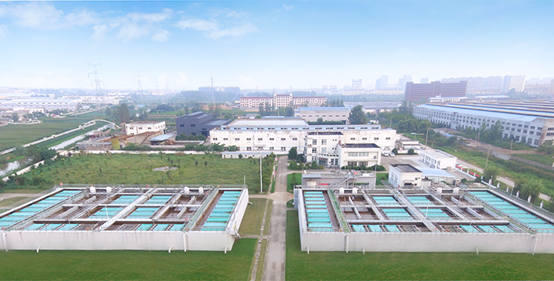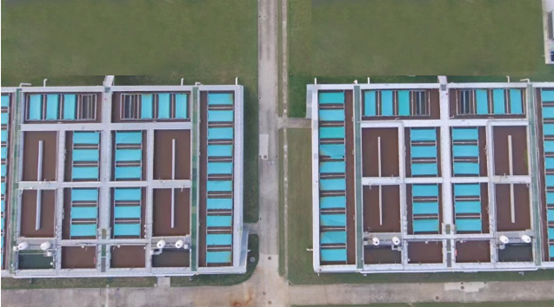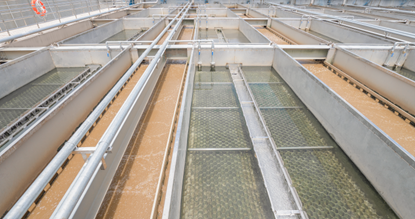A Solution of In-situ Expanded Sewage Treatment Equipment Without New Land Occupation:Yancheng Xiangshui County Urban Domestic Sewage Treatment Plant
Have you ever pondered the importance of efficient sewage treatment? Or perhaps, the challenges that come with upgrading existing facilities? It's the kind of thing that doesn't usually cross our minds, but it's crucial to our health, environment, and the sustainability of our cities. Now, imagine a scenario. You have an existing sewage treatment plant operating at full capacity, using traditional technology. You're tasked with upgrading it to a higher treatment standard, but there's a catch. You don't have any extra land to expand the facility. Sounds like a challenge, right? Well, that's the very problem the Yancheng Xiangshui County Urban Domestic Sewage Treatment Plant faced.

This facility in Yancheng City, Jiangsu Province, China, was originally equipped with the traditional A²/O process. It had a treatment capacity of thirty thousand cubic meters per day, and an effluent standard of first grade B. The task at hand was to upgrade and renovate the existing treatment process, but traditional methods would require a significant increase in land area. That's where the RPIR fast bio-treatment technology comes into play. After multiple rounds of expert review, the project adopted this innovative technology for in-situ upgrading. How? By directly adding RPIR fast bio-treatment modules into the existing biological treatment tanks and converting the original standby facilities into coagulation and sedimentation tanks. And the result? The effluent quality now meets the first grade A standard of the Discharge Standard of Pollutants for Municipal Wastewater Treatment Plant. But how exactly does the RPIR fast bio-treatment technology work?

RPIR stands for Rapid Plug Flow Integrated Reactor. It's a fast biochemical module that can be added directly into an existing biochemical pool. No need for land acquisition, no need for a complete overhaul of the existing infrastructure. This technology also eliminates the need for sludge reflux, reducing both investment and operating costs. The beauty of the RPIR fast bio-treatment technology lies in its simplicity. It’s a prefabricated, space-saving solution with a short construction period. It's also cost-effective and simple to operate and maintain, making it a desirable choice for sewage treatment plant upgrades and reconstruction.

So, to summarize, the Yancheng City project was a triumph of ingenuity and innovation. The use of RPIR fast bio-treatment technology enabled the upgrading and reconstruction of the treatment plant in a cost-effective, efficient, and eco-friendly manner. The project highlights the potential of such technologies in addressing one of our most pressing urban challenges - the efficient and sustainable treatment of sewage. Remember, the next time you flush your toilet, there's a whole world of science, engineering, and innovation working to ensure that our cities stay clean, our rivers stay unpolluted, and our environment remains sustainable. It's a fascinating world, indeed.
 LOADING...
LOADING...
 DATE:2024年04月08日
DATE:2024年04月08日


